Abstract
The maxillary anteriors play an important role in esthetics. Therefore after extraction, it is crucial to preserve the hard tissue and soft tissue in order to promote esthetics of restoration. There are several challenges when restoring the maxillary anteriors via implant. Some of the challenges are be maintaining consistency with neighboring teeth in terms of shade, form, and texture : as well as having harmonious emergency with the gingival margin. In this case, a traumatized patient with crown-root fracture of the maxillary central and lateral incisors is presented. The cracked teeth were extracted, and implants were inserted with bone grafts to compensate the volume of damaged area of the maxillary anterior. Cantilever implant prosthetics were planned while precise adjustments to the gingival area were made using customized impression coping to perform the esthetic restorations. The final outcome of the treatment was satisfying in both esthetic and utilitarian perspective. (J Korean Acad Prosthodont 2016;54:298-305)
Go to : 
REFERENCES
1.Santosa RE. Provisional restoration options in implant dentistry. Aust Dent J. 2007. 52:234–42.
2.Buser D., Chen ST., Weber HP., Belser UC. Early implant placement following single-tooth extraction in the esthetic zone: biologic rationale and surgical procedures. Int J Periodontics Restorative Dent. 2008. 28:441–51.
3.Buser D., Martin W., Belser UC. Optimizing esthetics for implant restorations in the anterior maxilla: anatomic and surgical considerations. Int J Oral Maxillofac Implants. 2004. 19:43–61.
4.Dawson T., Chen ST. The SAC classification in implant dentistry. Berlin: Quintessence Publishing;2009.
5.Tarnow DP., Cho SC., Wallace SS. The effect of inter-implant distance on the height of inter-implant bone crest. J Periodontol. 2000. 71:546–9.

6.Kan JY., Rungcharassaeng K. Interimplant papilla preservation in the esthetic zone: a report of six consecutive cases. Int J Periodontics Restorative Dent. 2003. 23:249–59.
7.Daoudi MF., Setchell DJ., Searson LJ. A laboratory investigation of the repositioning impression coping technique at the implant level for single-tooth implants. Eur J Prosthodont Restor Dent. 2003. 11:23–8.
8.Buser D., Halbritter S., Hart C., Bornstein MM., Grütter L., Chappuis V., Belser UC. Early implant placement with simultaneous guided bone regeneration following single-tooth extraction in the esthetic zone: 12-month results of a prospective study with 20 consecutive patients. J Periodontol. 2009. 80:152–62.

9.Buser D., Belser UC. Correct three-dimensional implant placement: the concept of danger and comfort zones. Quintessence Publishing;2008.
Go to : 
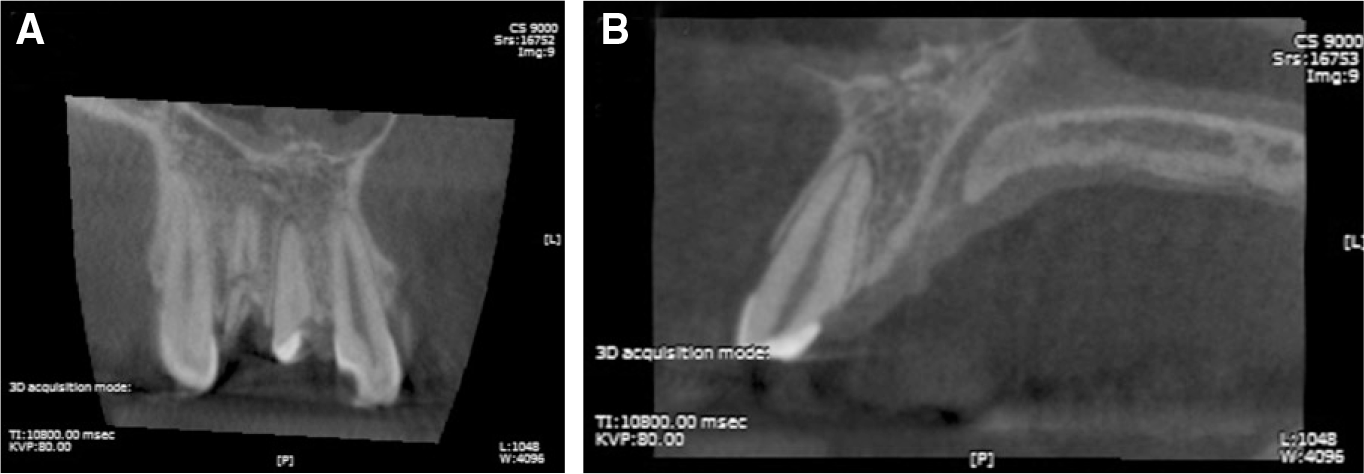 | Fig. 2.CBCT scan of anterior segment, demonstrating root fractures in teeth #11, #12 at first visit. (A) Coronal view, (B) Sagittal view. |
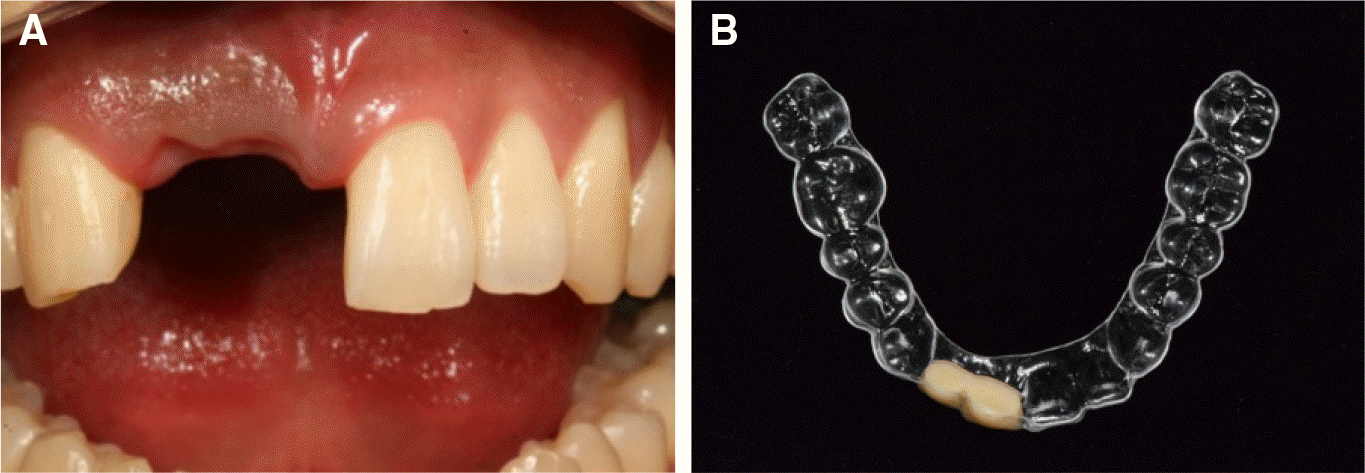 | Fig. 3.(A) Healing of the extraction sockets 8 weeks after removing teeth #11 and #12, (B) Essix retainer. |
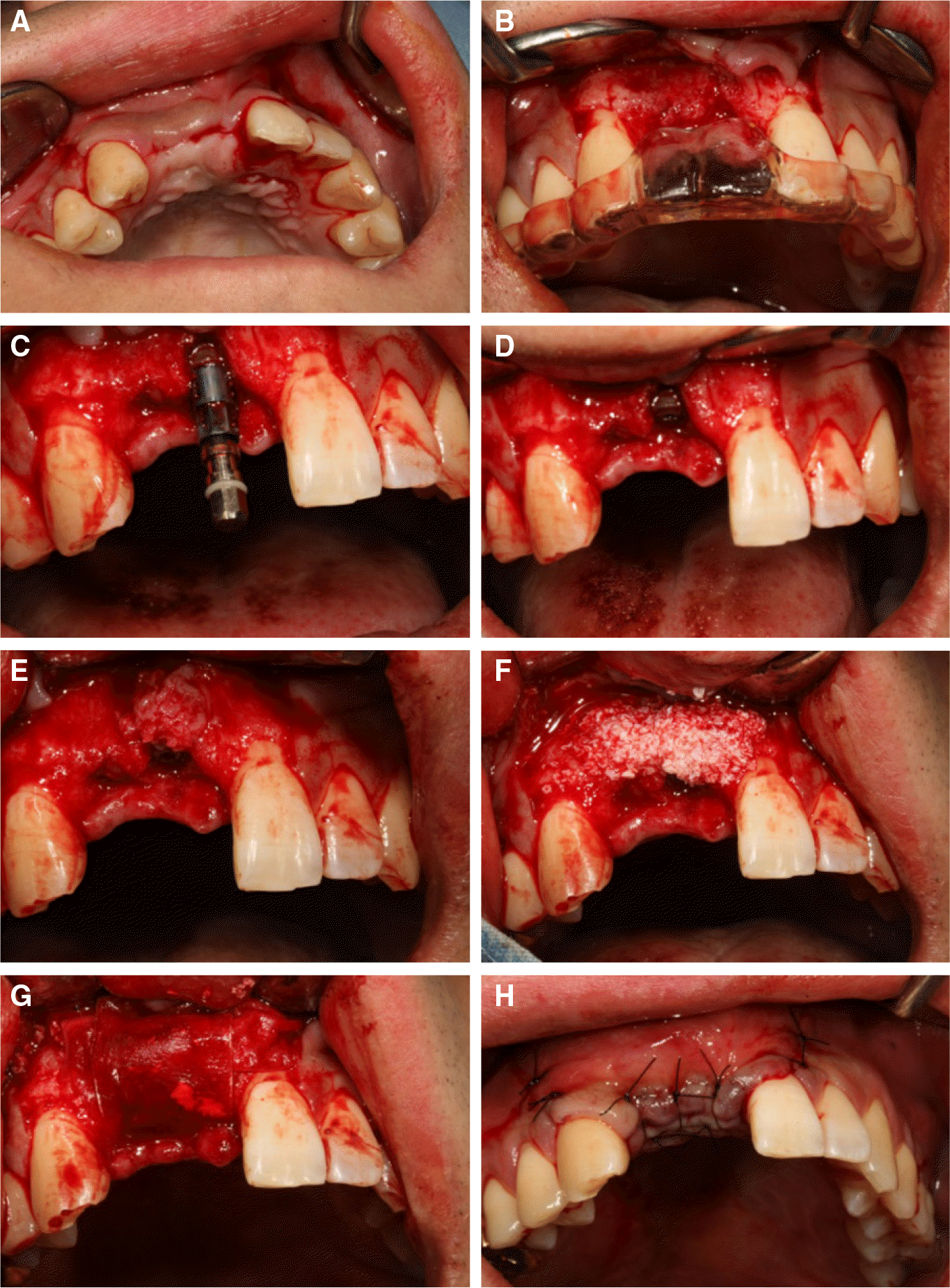 | Fig. 4.Implant surgery. (A) Incision, (B) Flap elevation, (C, D) Implant placement, (E) Locally harvested autologous bone chip, (F) Bio-oss, (G) Bio-gide, (H) Suture (5-0 nylon). |
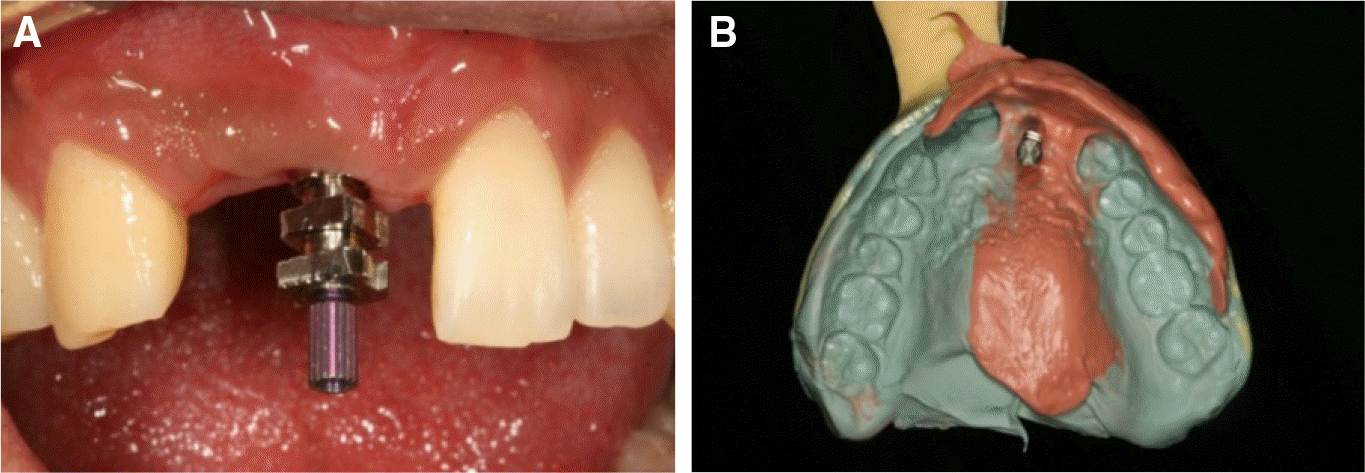 | Fig. 6.(A) View of the impression coping for the first impression, (B) Using an open-tray technique. |
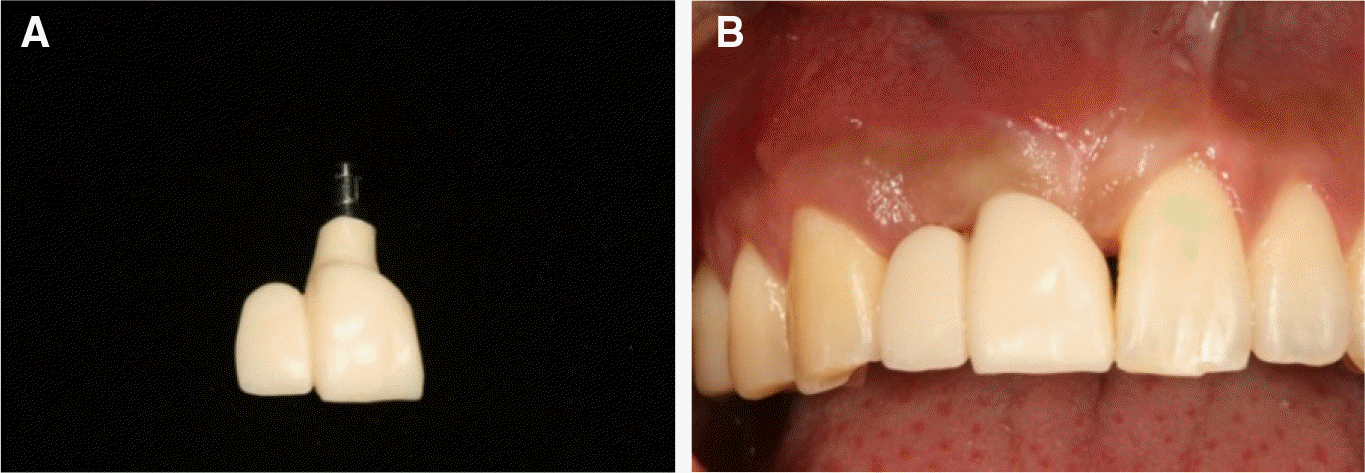 | Fig. 7.(A) Implant-supported screw-retained temporary restoration at site #11 with a cantilever unit at site #12. (B) Note the tissue blanching immediately after delivery. |
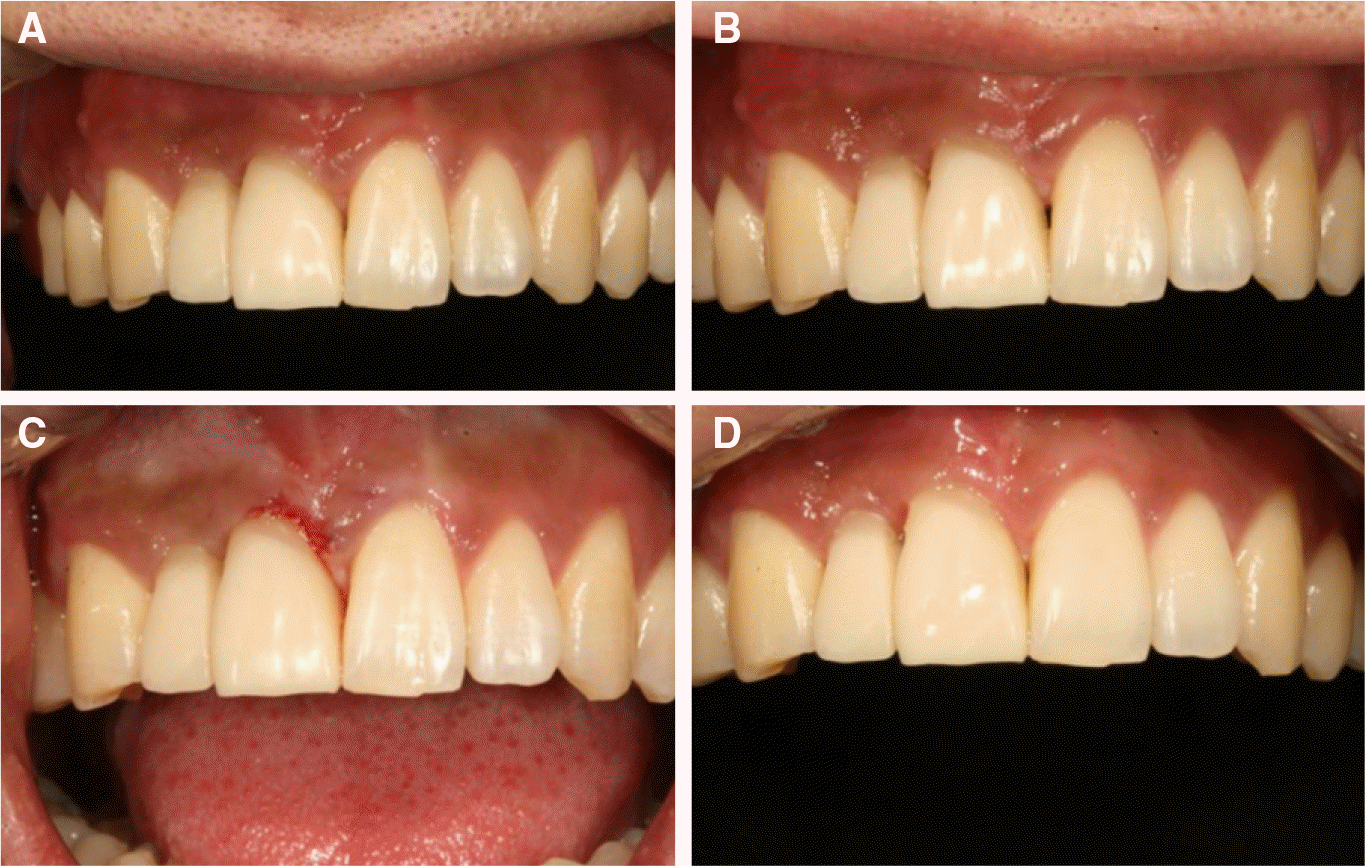 | Fig. 8.(A) 6 weeks after temporary bridge delivery, (B) 8 weeks after temporary bridge delivery, (C) 10 weeks after temporary bridge delivery and gingivectomy, (D) 14 weeks after temporary bridge delivery. |
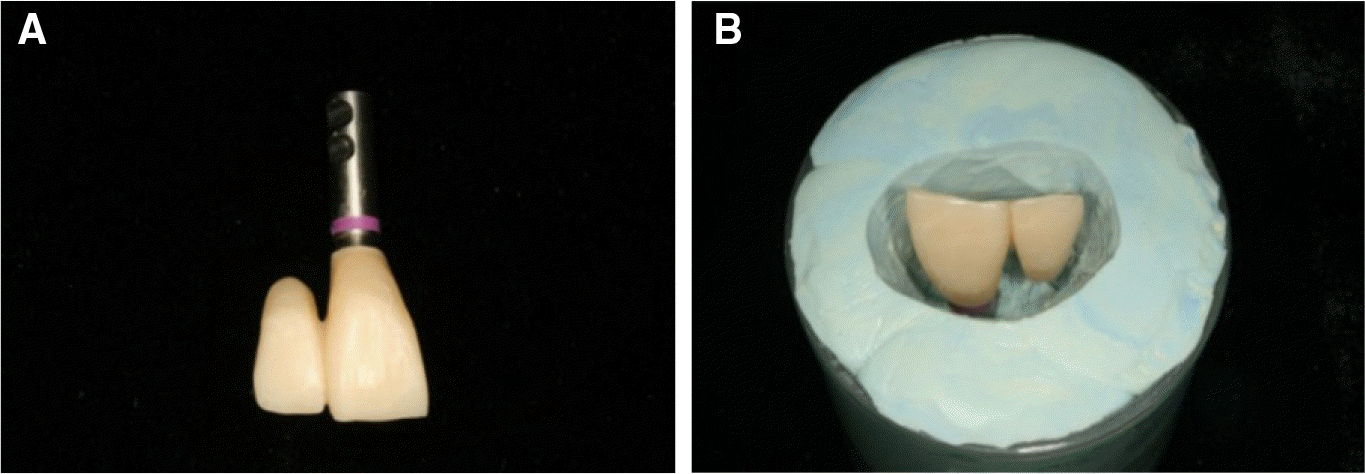 | Fig. 9.(A) The temporary restoration, (B) Silicone index of the cervical area of the temporary restoration. |




 PDF
PDF ePub
ePub Citation
Citation Print
Print


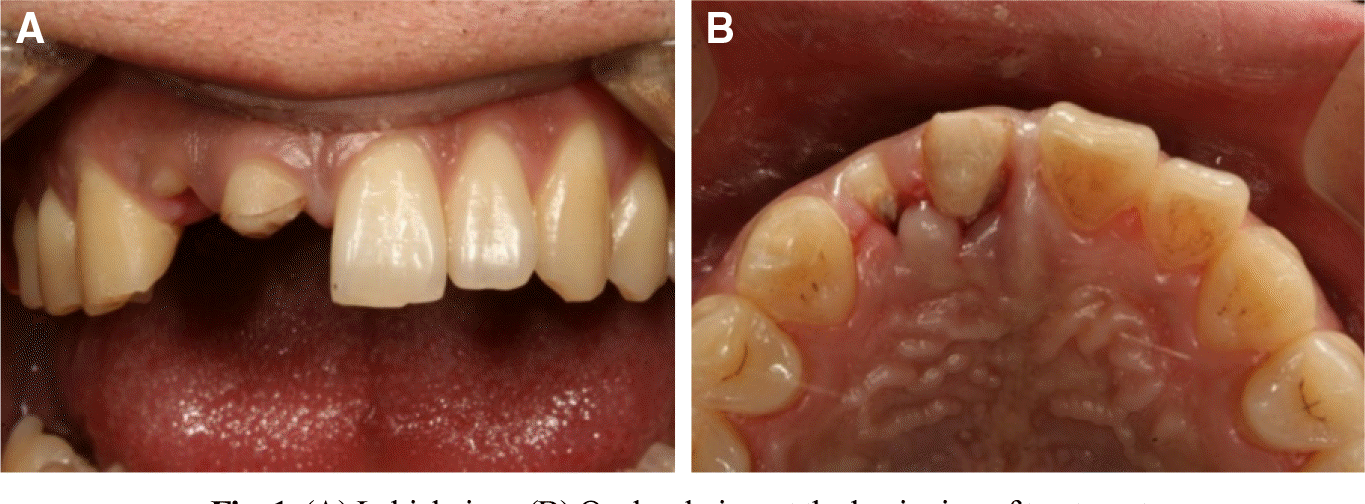
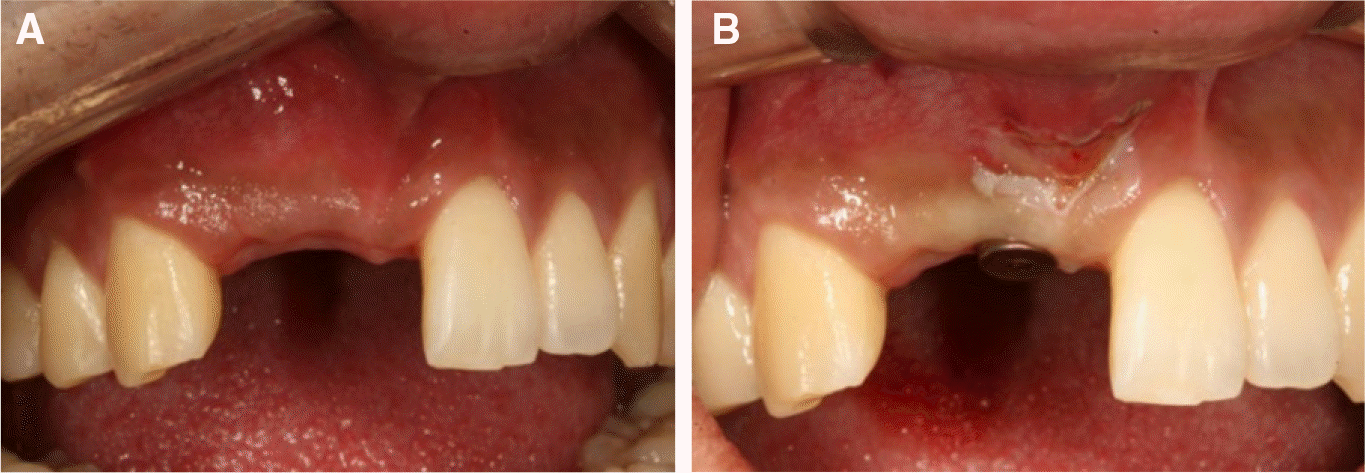
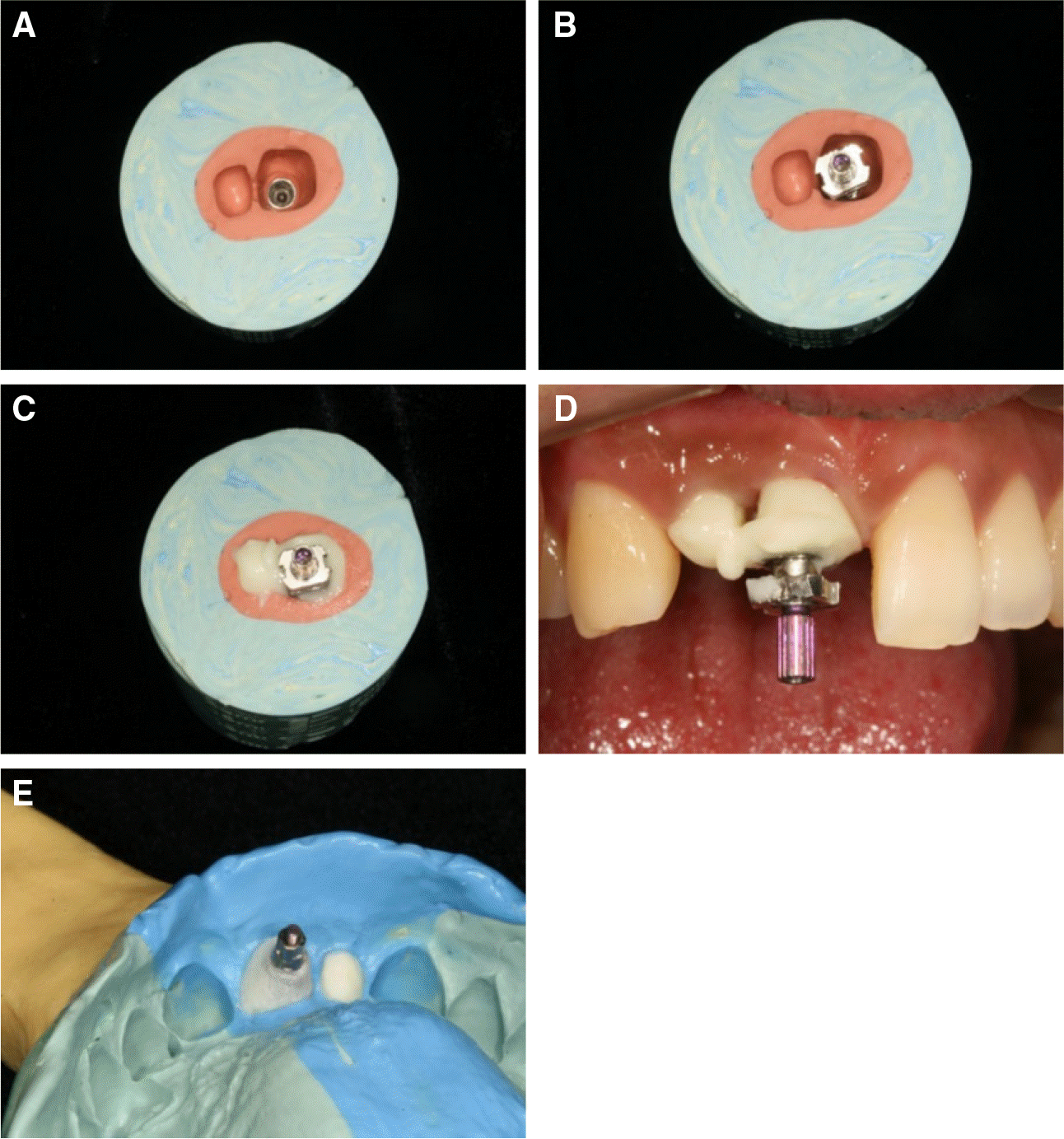
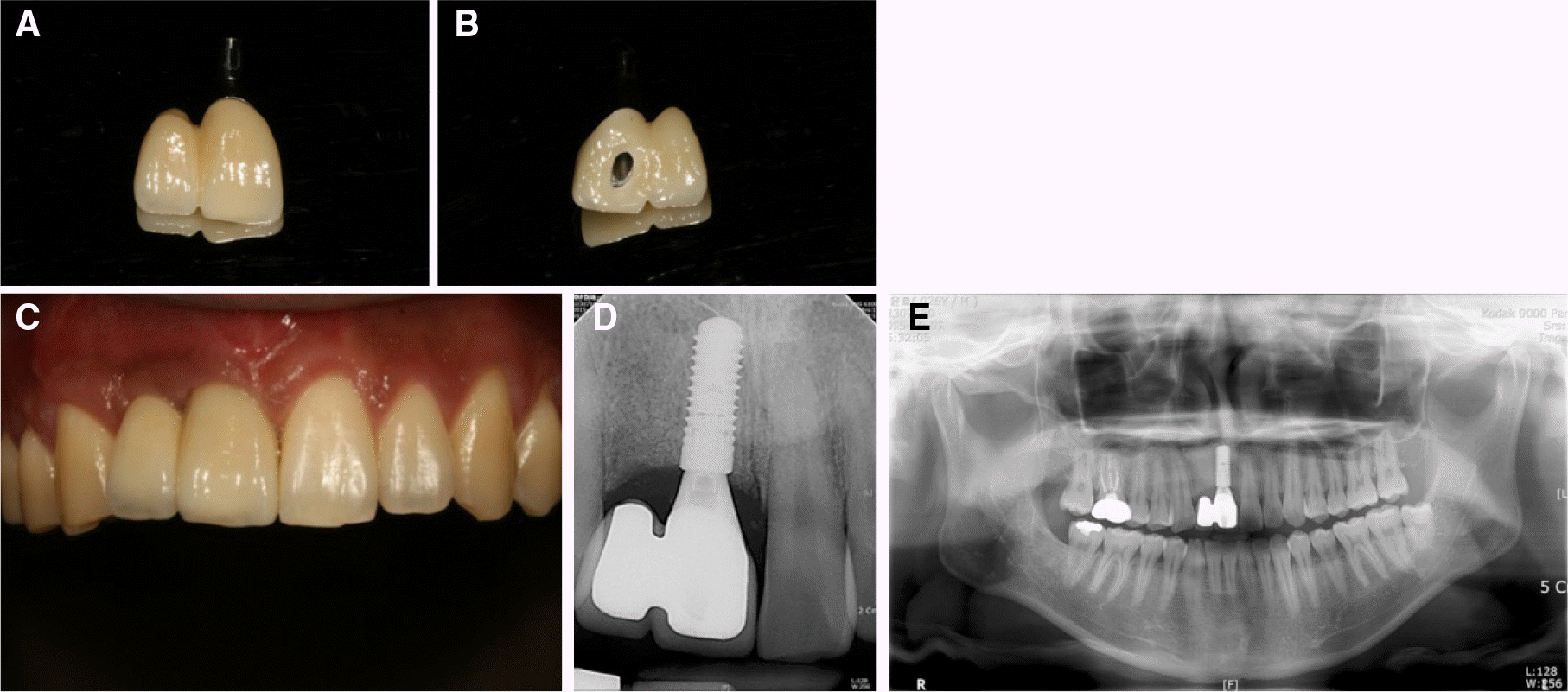
 XML Download
XML Download